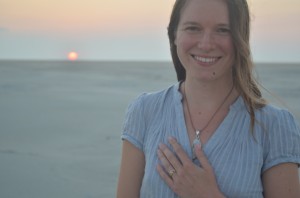This post is written in conjunction with the “Becoming a Public Scholar” course and is directed by Monica A. Coleman.
Just the other day, during a panel discussion on “Creating Women’s Theology,” Dr. Monica A. Coleman (who co-authored a book by the same name) said this was the first of her texts that her mother really understood. After all, Dr. Coleman is typically writing about things related to process theology and philosophy, and anyone who’s read Alfred North Whitehead can attest that his work is not exactly what one would call “accessible.” Though it’s challenging for any scholar of religion or theology to translate their research into common language, it’s exactly this challenge that must be overcome if the chasm between the scholars and the pews is ever going to be bridged for the public good.
In his book, Pitch Perfect: Communicating with Traditional and Social Media for Scholars, Researchers, and Academic Leaders, William Tyson dishes up some excellent practical advice for how academics should approach traditional and social media so as to be able to tell their story. Like Chip and Dan Heath, who teach that ideas must be “simple,” “unexpected,” “credible” and “concrete” in order to “stick,” Tyson tells us that a story must be unknown or unexpected in order to be picked up by the media. “Dog bites man” is ho-hum, “man bites dog” is news.
There has been a lot of theological and religious “news” in the last century. Feminist theology, liberation theology, process theology and all kinds of other compelling ideas have been developed by those most committed to the study of the faith, yet if you asked the proverbial person “on the street” what they believed, it’s unlikely you’d hear much of anything other than theologies that are not only centuries old but that seem less and less viable after Darwin, the Holocaust and quantum mechanics. Why is this the case?
I think it’s because scholars of theology and religion have abandoned their responsibilities to always keep theology connected to real life experience. After all, if a theology doesn’t help transform one’s life, then of what value is it?
Tyson prescribes strong medicine when he tells us to lose the incomprehensible language: “When talking with a reporter, don’t speak Klingon, even if you are both attending a Star Trek convention.” Quoting William Powers, he takes scholars to task by pointing out that “most academics are used to giving long, tortured answers to a question.” Instead, Tyson reminds us to “Be specific. Use short answers and avoid jargon.”
People are abandoning organized religion in droves, both mainstream and evangelical flavors, and we all know more and more people who describe themselves as “spiritual but not religious.” Yet I believe that humans, especially in Western cultures, are hungry for meaning, for connection, and for deep experiences of the sacred. I also believe that those of us immersed in religious and theological scholarship have satisfying nourishment to offer that will never reach starving people if we don’t lose the tortured language and break out of our academic bubbles.
There’s just one solution: it’s time to start talking to Mom.
Sheri Kling is a doctoral student at Claremont Lincoln University. Her research interests include the resonances between process thought and Jungian psychology as a spiritual practice of dream work and examination of synchronicities. She earned the MTS degree at Lutheran School of Theology at Chicago, and she is a member of the American Academy of Religion, the International Association for the Study of Dreams, and the American Teilhard Association.











